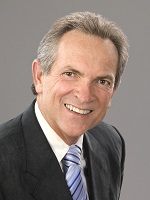Empower Yourself: Know Your Assets
Posted on May 11, 2015 byPeople often ask me, “Russ, how do you stay so motivated, confident, and upbeat?”
My answer? I know my assets, and I make sure that I have more assets than liabilities.
Do you know your assets?
Knowing your assets will allow you to assess whether or not you are heading in the right direction. It will show you if you are winning or losing. I like to know what my assets are because it builds my self-esteem and feeds my ego. There is nothing like a good ego boost!
Here are the 4 types of assets:
- Physical/ Money
- Community
- Education/ Skills
- People
Physical/ Money Assets
When we think of assets, we typically think of money! But there is much more than that. There are physical assets.
The easiest way to calculate this is to take everything you owe (liabilities) and subtract it from the money you currently have (assets).
Liabilities include any payments you are making. This might include school loans, credit card payments, car payments, or house payments.
Liabilities are not Expenses. Many people think that utilities, food, and contributions to a saving and retirement account are liabilities, but because you do not have a loan to pay that is associated with them, they are expenses rather than liabilities.
Physical Assets are things that are worth more money than you owe. They may not be money in the bank, but they represent money that you have. For example, if you can sell your car for more than you owe then the car is a physical asset. These types of assets may include your house, stocks, bonds, investments, retirement accounts, and savings.
Here is the key: You should be striving to have more assets than liabilities.
Community Assets
Community Assets are things that we often overlook when we think about what is valuable. They are the things we might take for granted such as what your community offers. They are roads, sewer systems, banks, and grocery stores. They include anything which is provided through your taxes such as public transportation, good schools, parks, and libraries.
You don’t have much control over these assets, but when you humble yourself to realize that your life in the USA is 100 times better than many in Mexico, Africa, and the Middle East, you will see that you do have assets. Think of it this way–Have you ever desired a hot shower so badly that it was a joy when you finally got it? Your ability to get this within your own home is a community asset.
Remembering and appreciating your community assets is one thing you can do to be a more positive, successful person.
Educational and Skill Asset:
This asset is another one typically taken for granted. It is a compilation of what you bring to the table such as math skills, problem solving skills, excellent people skills, power, community contacts, and a good education. These are your strengths and thus your assets.
Think of it this way: you have invested vast amounts of time in educating yourself, whether that is through a formal education, networking, classes, or hand-on practice. Don’t sell yourself short. You have unique skills that you have worked hard to develop, and they are valuable assets.
No one can take these assets from you, but you can give them to others or sell them as a service. When you know what you have to offer, you can pull yourself out of a rut. If something doesn’t pan out the way you wanted, you can reassure yourself that you still have your education and your skill and that you can get yourself going again. These are the assets which give you pride when you are rejected or lose a deal. You can always fall back on them.
People Assets
As I grow as an investor, I am increasingly realizing that people assets are the most powerful. People assets are those people who support you emotionally, who empower you and uplift you.
Try this: List the people you know. Include friends, acquaintances, and family. Then assess these relationships.
If they are discouraging you, causing drama, costing you money which is not budgeted, or have addictive behaviors that are causing you to lose focus, then they are a liability. If people are liabilities, you will need to learn to manage them or end the relationship.
On the other hand, if they are assets, then nurture the relationship so that it is beneficial. Work on partnerships, referrals, education, information, empowerment, and joy.
I know people who went to Harvard and Yale. They have a prestigious education and have developed relationships and connections with positive people who have propelled them into prosperity and happiness. They have highly developed people assets. Education has helped them in developing people assets.
But there are other ways of developing this asset. For example, one of my students wants to spend $65,000 for a seminar. Should he go? Yes—because this is an investment in people assets. The people in the seminar may not solve business issues, but they will have connections, a net –work, and net worth. Tapping into their resources will expand his people assets.
I want you to spend some time making a list of all of your assets in each of the four categories. Knowing these assets will empower you to the next level. You will know where you want to go, and you will know that you have the skills to do it.
